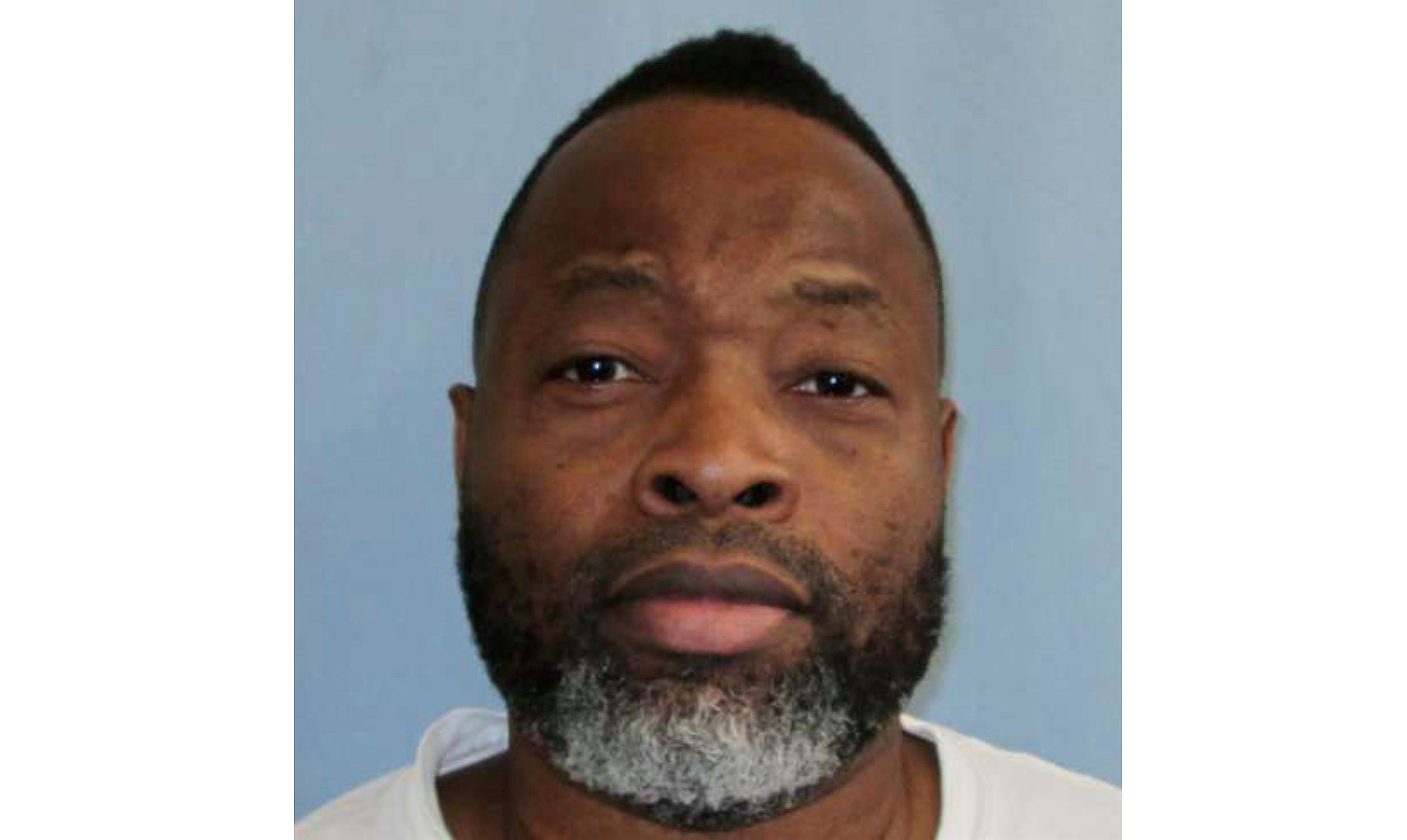Alabama execution set over opposition from victim's family
Alabama is set to execute a man convicted of killing his ex-girlfriend decades ago, despite a request from the victim's two daughters to spare the man's life

Your support helps us to tell the story
From reproductive rights to climate change to Big Tech, The Independent is on the ground when the story is developing. Whether it's investigating the financials of Elon Musk's pro-Trump PAC or producing our latest documentary, 'The A Word', which shines a light on the American women fighting for reproductive rights, we know how important it is to parse out the facts from the messaging.
At such a critical moment in US history, we need reporters on the ground. Your donation allows us to keep sending journalists to speak to both sides of the story.
The Independent is trusted by Americans across the entire political spectrum. And unlike many other quality news outlets, we choose not to lock Americans out of our reporting and analysis with paywalls. We believe quality journalism should be available to everyone, paid for by those who can afford it.
Your support makes all the difference.Alabama is set to execute a man Thursday evening who was convicted of killing his ex-girlfriend nearly three decades ago, despite a request from the victim’s family to spare his life.
Joe Nathan James Jr. is scheduled to receive a lethal injection at 6 p.m. CDT at a south Alabama prison. James was convicted and sentenced to death in the 1994 shooting death of Faith Hall, 26, in Birmingham. Hall's daughters have said they would rather James serve life in prison. But Alabama Gov. Kay Ivey said Wednesday she planned to let the execution proceed.
Prosecutors said James briefly dated Hall and that he became obsessed after she rejected him, stalking and harassing her for months before killing her. On Aug. 15, 1994, after Hall had been out shopping with a friend, James forced his way inside the friend's apartment, pulled a gun from his waistband and shot Hall three times, according to court documents.
A Jefferson County jury first convicted James of capital murder in 1996 and voted to recommend the death penalty, which a judge imposed. The conviction was overturned when a state appeals court ruled a judge had wrongly admitted some police reports into evidence. James was retried and again sentenced to death in 1999, when jurors rejected defense claims that he was under emotional duress at the time of the shooting.
Hall’s two daughters, who were 3 and 6 when their mother was killed, had said recently they would rather James serve life in prison.
“I just feel like we can’t play God. We can’t take a life. And it’s not going to bring my mom back,” one of the daughters, Terryln Hall, told The Associated Press in a recent telephone interview.
“We thought about it and prayed about it, and we found it in ourselves to forgive him for what he did. We really wish there was something that we could do to stop it,” Hall had said, adding the road to forgiveness was long.
“I did hate him. I did. And I know hate is such a strong feeling word, but I really did have hate in my heart. As I got older and realized, you can’t walk around with hate in your heart. You still got to live. And once I had kids of my own, you know, I can’t pass it down to my kids and have them walk around with hate in their hearts,” she said.
Alabama Attorney General Steve Marshall had urged Ivey to let the execution go forward, writing that “it is our obligation to ensure that justice is done for the people of Alabama.”
“The jury in James’s case unanimously decided that his brutal murder of Faith Hall warranted a sentence of death,” Marshall said.
In response to a reporter's question, Ivey said Wednesday she would not intervene.
“My staff and I have researched all the records and all the facts and there’s no reason to change the procedure or modify the outcome. The execution will go forward," she said.
James has acted as his own attorney in his bid to stop his execution, mailing handwritten lawsuits and appeal notices to the courts from death row. A lawyer on Wednesday filed the latest appeal with the U.S. Supreme Court on his behalf.
James asked justices for a stay, noting the opposition of Hall's family and arguing that Alabama did not give inmates adequate notice of their right to select an alternate execution method.
He argued that Alabama officials, after lawmakers approved nitrogen hypoxia as a new execution method, gave inmates only a brief window of time to select the new method and inmates did not know what was at stake when they were handed a selection form without any explanation. Alabama is not scheduling executions for inmates who selected nitrogen. The state has not developed a system for using nitrogen to carry out death sentences.